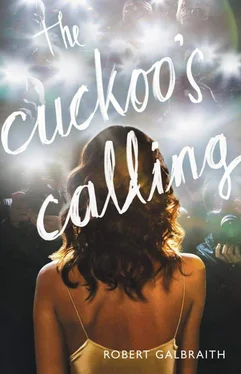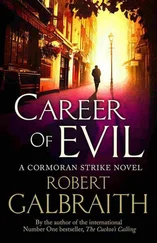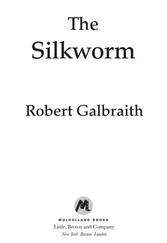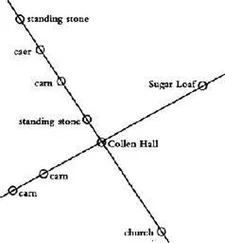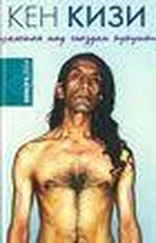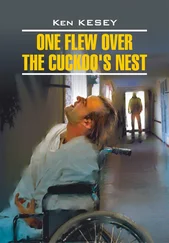“Was she?”
“Yeah. In the police pictures of the body—”
But Somé threw up his arm in an involuntary gesture of refutation, of self-protection, then got to his feet, breathing hard, and walked to the photograph wall, where Lula stared out of several pictures, smiling, wistful or serene. When the designer turned to face Strike again, the strange bulging eyes were wet.
“Fucking hell,” he said, in a low voice. “Don’t talk about her like that. ‘The body.’ Fucking hell. You’re a cold-blooded bastard, aren’t you? No fucking wonder old Jonny’s not keen on you.”
“I wasn’t trying to upset you,” said Strike calmly. “I only want to know whether you can think of any reason she’d have changed her clothes when she got home. When she fell, she was wearing trousers and a sequined top.”
“How the fuck should I know why she changed?” asked Somé, wildly. “Maybe she was cold. Maybe she was—This is fucking ridiculous. How could I know that?”
“I’m only asking,” said Strike. “I read somewhere that you’d told the press she died in one of your dresses.”
“That wasn’t me, I never announced it. Some tabloid bitch rang the office and asked for the name of that dress. One of the seamstresses told her, and they called her my spokesman. Making out I’d tried to get publicity out of it, the cunts. Fucking hell.”
“D’you think you could put me in touch with Ciara Porter and Bryony Radford?”
Somé seemed off-balance, confused.
“What? Yeah…”
But he had begun to cry in earnest; not like Bristow, with wild gulps and sobs, but silently, with tears sliding down his smooth dark cheeks and on to his T-shirt. He swallowed and closed his eyes, turned his back on Strike, rested his forehead against the wall and trembled.
Strike waited in silence until Somé had wiped his face several times and turned again towards him. He made no mention of his tears, but walked back to his chair, sat down and lit a cigarette. After two or three deep drags, he said in a practical and unemotional voice:
“If she changed her clothes, it was because she was expecting someone. Cuckoo always dressed the part. She must’ve been waiting for someone.”
“Well that’s what I thought,” said Strike. “But I’m no expert on women and their clothes.”
“No,” said Somé, with a ghost of his malicious smile, “you don’t look it. You want to speak to Ciara and Bryony?”
“It’d help.”
“They’re both doing a shoot for me on Wednesday: 1 Arlington Terrace in Islington. If you come along fivish, they’d be free to talk to you.”
“That’s good of you, thanks.”
“It isn’t good of me,” said Somé quietly. “I want to know what happened. When are you speaking to Duffield?”
“As soon as I can get hold of him.”
“He thinks he’s got away with it, the little shit. She must’ve changed because she knew he was coming, mustn’t she? Even though they’d rowed, she knew he’d follow her. But he’ll never talk to you.”
“He’ll talk to me,” said Strike easily, as he put away his notebook and checked his watch. “I’ve taken up a lot of your time. Thanks again.”
As Somé led Strike back down the spiral stairs and along the white-walled corridor, some of his swagger returned to him. By the time they shook hands in the cool tiled lobby, no trace of distress remained on show.
“Lose some weight,” he told Strike, as a parting shot, “and I’ll send you something XXL.”
As the warehouse door swung closed behind Strike, he heard Somé call to the tomato-haired girl at the desk: “I know what you’re thinking, Trudie. You’re imagining him taking you roughly from behind, aren’t you? Aren’t you, darling? Big rough soldier boy,” and Trudie’s squeal of shocked laughter.
CHARLOTTE’S ACCEPTANCE OF STRIKE’S SILENCE was unprecedented. There had been no further calls or texts; she was maintaining the pretense that their last, filthy, volcanic row had changed her irrevocably, stripped away her love and purged her of fury. Strike, however, knew Charlotte as intimately as a germ that had lingered in his blood for fifteen years; knew that her only response to pain was to wound the offender as deeply as possible, no matter what the cost to herself. What would happen if he refused her an audience, and kept refusing? It was the only strategy he had never tried, and all he had left.
Every now and then, when Strike’s resistance was low (late at night, alone on his camp bed) the infection would erupt again: regret and longing would spike, and he saw her at close quarters, beautiful, naked, breathing words of love; or weeping quietly, telling him that she knew she was rotten, ruined, impossible, but that he was the best and truest thing she had ever known. Then, the fact that he was a few pressed buttons away from speaking to her seemed too fragile a barricade against temptation, and he sometimes pulled himself back out of his sleeping bag and hopped in the darkness to Robin’s abandoned desk, switching on the lamp and poring, even for hours, over the case report. Once or twice he placed early-morning calls to Rochelle Onifade’s mobile, but she never answered.
On Thursday morning, Strike returned to the wall outside St. Thomas’s, and waited for three hours in the hope of seeing Rochelle again, but she did not turn up. He had Robin call the hospital, but this time they refused to comment on Rochelle’s non-attendance, and resisted all attempts at getting an address for her.
On Friday morning, Strike returned from an outing to Starbucks to find Spanner sitting not on the sofa beside Robin’s desk, but on the desk itself. He had an unlit roll-up in his mouth, and was leaning over her, apparently being more amusing than Strike had ever found him, because Robin was laughing in the slightly grudging manner of a woman who is entertained, but who wishes, nevertheless, to make it clear that the goal is well defended.
“Morning, Spanner,” said Strike, but the faintly repressive quality of his greeting did nothing to moderate either the computer specialist’s ardent body language or his broad smile.
“All right, Fed? Brought your Dell back for you.”
“Great. Double decaff latte,” Strike told Robin, setting the drink down beside her. “No charge,” he added, as she reached for her purse.
She was touchingly averse to charging minor luxuries to petty cash. Robin made no objection in front of their guest, but thanked Strike, and turned again to her work, which involved a small clockwise swivel of her desk chair, away from the two men.
The flare of a match turned Strike’s attention from his own double espresso to his guest.
“This is a non-smoking office, Spanner.”
“What? You smoke like a fucking chimney.”
“Not in here I don’t. Follow me.”
Strike led Spanner into his own office and closed the door firmly behind him.
“She’s engaged,” he said, taking his usual seat.
“Wasting my powder, am I? Ah well. Put in a word for me if the engagement goes down the pan; she’s just my type.”
“I don’t think you’re hers.”
Spanner grinned knowingly.
“Already queuing, are you?”
“No,” said Strike. “I just know her fiancé’s a rugby-playing accountant. Clean-cut, square-jawed Yorkshireman.”
He had formed a surprisingly clear mental image of Matthew, though he had never seen a photograph.
“You never know; she might fancy rebounding on to something a bit edgier,” said Spanner, swinging Lula Landry’s laptop on to the desk and sitting down opposite Strike. He was wearing a slightly tatty sweatshirt and Jesus sandals on bare feet; it was the warmest day of the year so far. “I’ve had a good look at this piece of crap. How much technical detail do you want?”
Читать дальше
